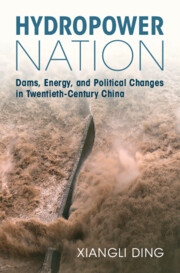Epilogue
Published online by Cambridge University Press: 24 October 2024
Summary
In 1992, amid intense controversy among both hydraulic engineers and the general public, the proposal for the Three Gorges project was submitted to the National People’s Congress for a vote. Li Peng, the Premier of the PRC, who had received training in hydroelectric engineering in the Soviet Union in the early 1950s, oversaw the submission. Despite the fact that proposals submitted to the Congress typically receive unanimous support, the Three Gorges project proposal was passed with vocal oppositions. Despite this, the launch of the massive project on the Yangtze River was seen as a triumph for individuals like Li Peng who were proponents of a technology-centered approach to development. It was broadly perceived as a statement of the Communist Party’s firm control over the Chinese people as well as the country’s land and waterways. Viewing through the lens of environmental history, water control is a crucial aspect of human societies’ relationships with the natural world. In the context of China’s long history of water management, the Three Gorges project elevated the country’s status as a major player in hydropower. From its inception, though, the project has been plagued with social conflicts and environmental difficulties. The full story of the interplay between this massive dam, the Yangtze River, and the Chinese people is yet to be told.
- Type
- Chapter
- Information
- Hydropower NationDams, Energy, and Political Changes in Twentieth-Century China, pp. 231 - 238Publisher: Cambridge University PressPrint publication year: 2024

